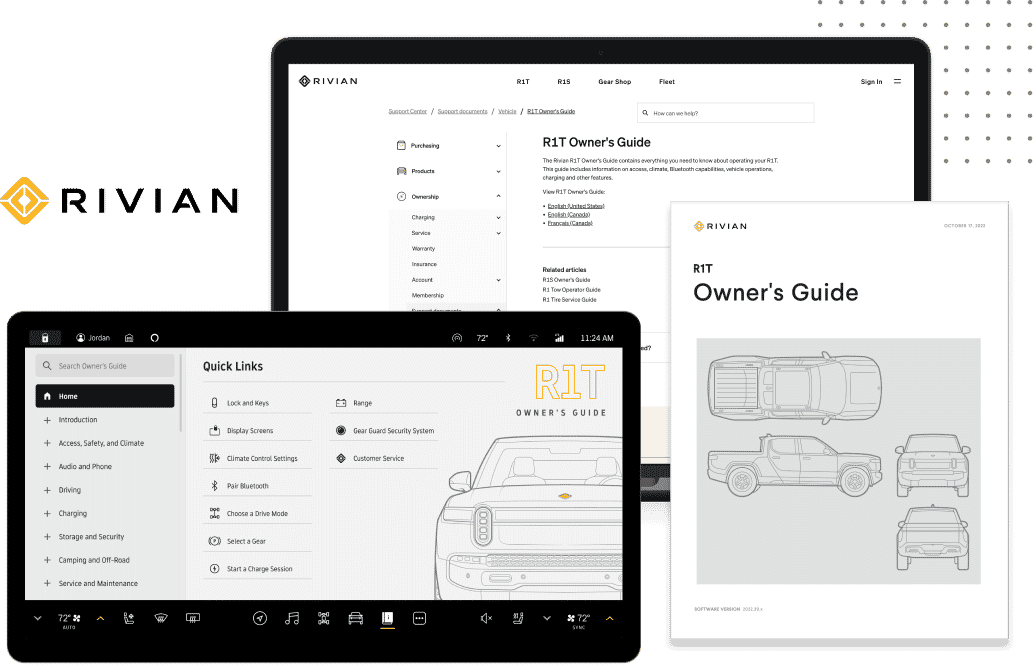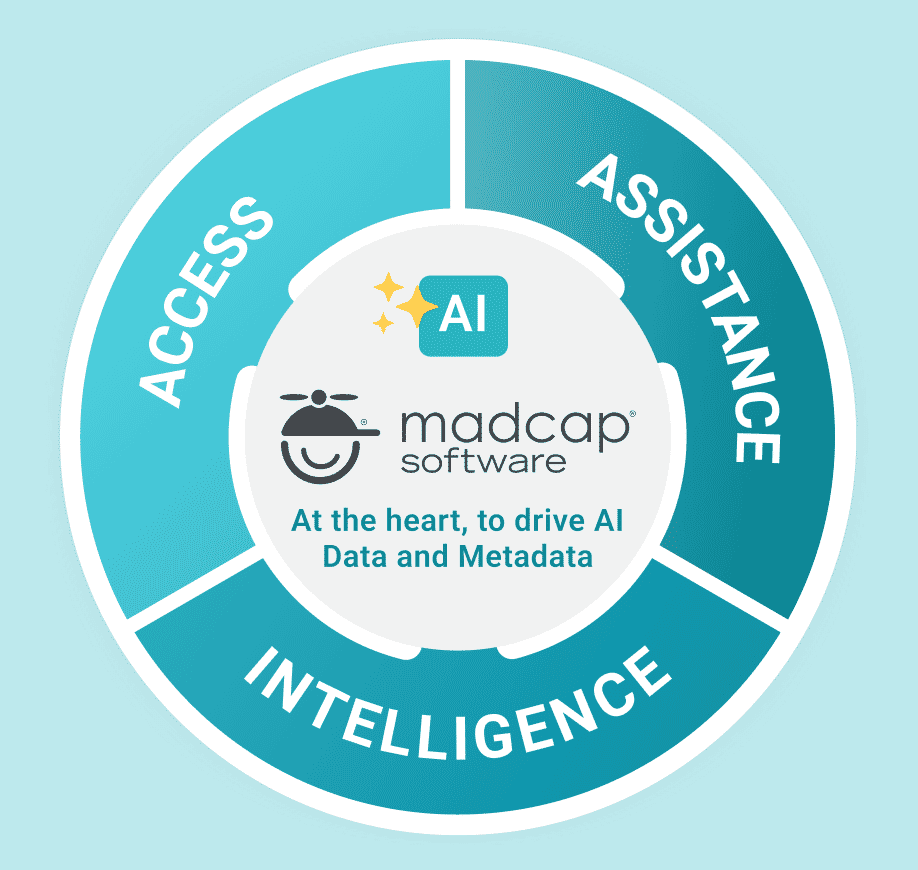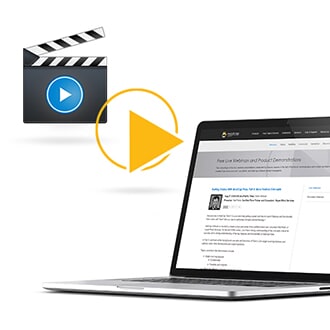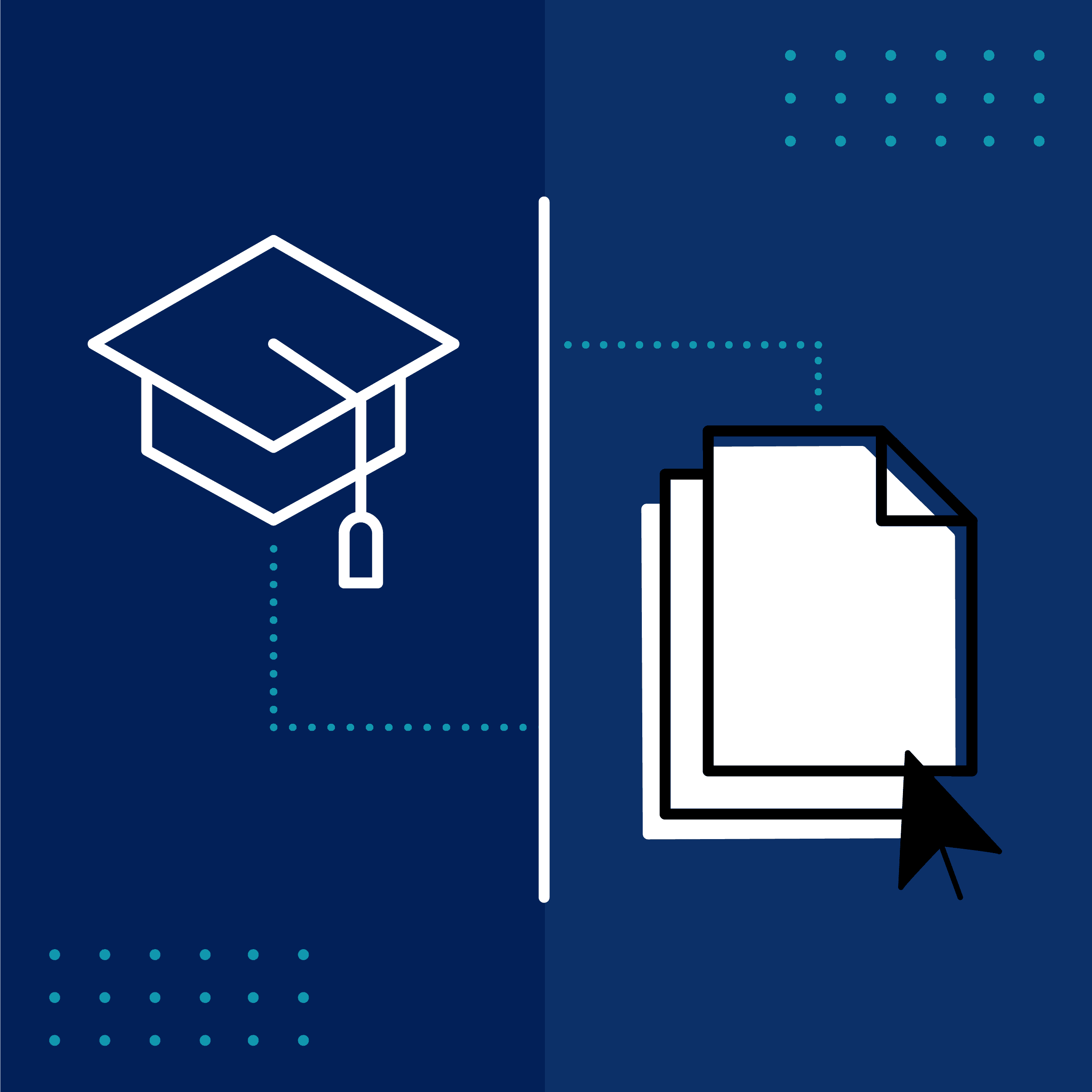Jack DeLand has provided Help projects and/or Help authoring training to Fortune 50 companies around the world for over 30 years. He specializes in MadCap Flare development and resides in Ypsilanti, a small city next to Ann Arbor, Michigan.
“Teacher,” asked the student. “How do I become the perfect consultant?”
“Why, that is very simple,” replied the teacher. “First become the perfect you.”
Consulting is Humane
In 1991, I decided to become the world’s best Help author, thus setting up a work in progress that can never be finished, a nearly tangible target constantly receding just over the horizon. Consulting actually came earlier for me, when I trained as an intern for a change management group. We practiced what I call corporate psychology, healing groups of workers in various organizations trying to assimilate a major change in work practices or suffering under poor management, (usually) both. I learned how every consultant’s training/counseling/group process was meant to help fellow humans. And I learned how the best efforts can fail.
At the same time, the early '90s was a revolutionary age for electronic publishing–WinHelp had arrived. For the first time, a tech writer could create a program that displayed text and images launched from an application—for free, so long as you had Windows to display it and Word to create RTF files to be compiled. WinHelp featured macros; we (the Help community) all experimented, talked on CompuServe and AOL, and shared tricks about the wonders of authoring for Windows and interacting with programs and programmers. To this day, I have never received so much in return as I did when I gave freely of my time and knowledge.
Some people calling themselves consultants talk an awful lot, but they pop in merely to perform a technical task. That’s contracting. Consulting is advising, which requires the ability to provide a better way of doing things, and there are many, many ways, but the heart of it all is, well, heart. Of course, the technical side is just as important, if you want to be really good. But to be good, you must first do good.
There is Always Work
The good news is, there is plenty of high-level consulting work out there. Bad news? You will have to spend a work-lifetime finding it; it’s called prospecting. Somewhat along the same lines, there is no ceiling to your consulting income; however, there is also no floor.
If your response is, “I don’t care, I can make it because I really am that good,” then congratulations. You need to be certain that you in fact are worth your fee. You do this by measuring your work against that of others, namely the best people you can find. Can you offer a better solution? Can you offer not just Plan B but Plan C, just in case? Is your solution more elegant, more efficient? Can you achieve the results you want? If not, what’s lacking, and if it’s technical skills by all means build them on your own or determine what you need to farm out. You don’t need to know and be able to do everything. You do need to be able to locate and secure assistance from the best. You are the person who makes things happen, and happen successfully. That is how you earn your keep.
Always be alert to news of the day and production trends in the binary world–not so much by flipping through social media but by finding solid research on how tech publications departments are changing. Tip: Things are always changing. Where does one find this solid research? It isn’t documented, and the theory of tech comm articles won’t help. I have never met a company that would officially release any information on its documentation strategy. This news is underground, but it is often shared by individual writers. Talk to every tech writer you can, and seek out people where change is happening. Find out why things are changing. What problem needs solving and why did this group choose this approach? Can you think of a better one?
Time is Your Enemy
You already knew this. You need to put into practice ways to maximize your available hours. This may mean that you get more money out of a day, or that you achieve a better end result, but sometimes both, if you’re lucky. Time suckers exist in every corner of life. Analyze your own work practices. What are you doing that’s unnecessary? This cuts a broad swath–unnecessary bookkeeping and unnecessary keystrokes are both time wasters. Which hurts most? What is success for you?
No matter what your answer, surely you will achieve it much easier and more completely if you have more time. Never rush when assessing a situation. Resist the urge to do something now, and plan instead. Get every single fact about the change that you can ascertain, preferably from multiple sources.
Play out multiple scenarios: what happens if we change x to y? What gets impacted, and how do we recover? There is an old saying to this effect: play games as if they were life, and life as if it were a game. Think at least four moves ahead in this game. Always think, never react. Yes, this is hard, but you wanted to be a consultant. Each project is a game, and each project is a chance to play exceedingly well. Forget “winning” as a goal here. The goal is to implement the correct functionality within the project delimiters of time and money.
Diffusion is Your Enemy, Too
You will never master every aspect of every subset of functionality for a feature-rich tool like Flare. You will be better at some things than others. Yet you must try. Try everything, try to break it, and take notes on what happened that you didn’t expect. Don’t rest until you know exactly what happened and why. What is your goal? Write it down. Do you have misgivings about a particular approach to a project? Explain these to yourself, but to a self-reading these notes 5 years later. You’re a writer, aren’t you? Know thyself. Think, think, think; always think. That’s what you’re paid for. Make connections in your head and see if they play out in reality.
Your Rivals Are Your Friends
Because you will never know everything, you will have specialized to become an expert in one area, while always investigating what’s current and what is sustainable, which are not always the same. A wise consultant knows that they will need help from another specialist occasionally. This goes both ways of course. Your rival may need you later. And, your friend knows things that you want to know, too. Study the competition’s websites and offerings. Learn what you can about their successes and failures. You need to know what works and what doesn’t. Learning from others’ mistakes is much less costly than learning from your own. How do projects blow up? What could and could not have helped? Think, and write it down. Revisit your notes later. What assumptions did you make that proved wrong? What didn’t you see, and why? Document and learn.
Learn Really Quickly
The teacher learns by teaching. Think about that. Twice. If you have no one else to teach, then teach yourself using the best practices you know. Find a result (say, a certain website functionality) that you want to emulate, then do it. Make it happen within Flare. Yes, the miracle of the Internet means that you can study others’ CSS, and while I don’t recommend the wholesale downloading of other people’s sites, I note that it is technically possible. Keep going until you achieve exactly the same result, or a result that you know is the best you can possibly do, within Flare.
Return to this exercise in 3 months, and I guarantee it will be much clearer, and much easier, once you have some practice implementation under your belt. You already know that you should be joining groups with the interests you want to pursue. Plenty of CSS groups out there, for instance. What’s important to them and how will it impact tech comm > Flare > you? You won’t get everything that the most experienced do, but you can learn the way that they THINK and crucially, how they problem-solve. You’re creating software, after all. Emulate the best people you know of. Evaluate constantly.
Be Obsessive
This will not play well within most families, but the object here is to be the best, not the most lovable. You want to be the person that comes to mind as The Solution. This requires hours and hours of experimentation, research, and endless tweaking to get things just right in Flare. You really are doing this to become the best in the world, yes? Then give yourself permission to be obsessive but know the costs in advance. Consider your time, which is a LOT more finite than you think.
Secret #1: Never Show an Incomplete Prototype
I’m not talking about the demo from Hell. I mean do not even show lorem ipsum text in a working mockup. If you have limited time to get the prototype ready, spend that time perfecting a small subset of functionality and text (just a few topics) rather than trying to be complete to show “the big picture.” Populate with empty TBD topics if you must show a dummy TOC. Assume that your reviewer will NOT understand omissions, shortcuts, or other rough and ready means to assembling a working prototype.
In creating the project, absolutely your first step is to make sure it all functions, with no compiler errors or warnings. But the client will not see that; they will see a typo that is #47 on your priorities list before they will see your elegant structural solution. They will see everything literally. It’s really extraordinary. You may get your prototype to fly perfectly, but reviewers will always find the tiny smudge on the windscreen of your F-35 doing a barrel roll at Mach 2.1. You get one shot. Think about it. Twice.
Secret #2: Leave Your Client Something Extra
For each and every project, you need to create a summary document describing exactly what you did and providing detailed instructions for how to carry on the work you have begun. Test your procedural instructions at different times. Provide illustrations and screenshots as much as possible, but these should be done last. Use whatever is necessary to be absolutely clear, and review the document with the people affected. Amazingly, many people (clients and practitioners) do not even consider this step, and of course, tech writers are notoriously poor at documenting their own processes, but you are The Consultant.
When I was doing training in Ann Arbor, I used to include “Mrs. DeLand’s chocolate chip cookies.” This was a big hit. For out-of-town assignments, I would leave behind a memorable tin toy called a Rocket Racer. These are now rare and expensive.

But of course, the real something extra, your knowledge, should always be apparent, upfront, and accessible, i.e., understandable and persuasive. For example, you may have suggestions about styling or accessibility concerns that the client has not considered (rare at the highest levels, but it does happen). Feel the client out very carefully to determine just how much advice is welcome. You do not need to leave the impression that you know better; you need to leave the certainty that you can offer more alternatives, logically ranked. If they think Arial has to be used come Hell or high water or the contract is in jeopardy, why, as they say down South, bless their hearts.
Secret #3: You May Already be a Consultant
If you’ve read this far, you may have a consulting mindset. Do you look at every project you’re on, whether as a permanent employee or not, as an opportunity to improve? Do you have concrete, viable alternatives? Are you constantly seeking out new technology? Do you open doors for others? Yes? Then you are thinking of others, and thinking outside your own self. Do you try out new CSS techniques or other techie advancements in Flare just to see what would happen? Good, but do you then perfect the result? Perfect the result now. Good. You’re on your way.










